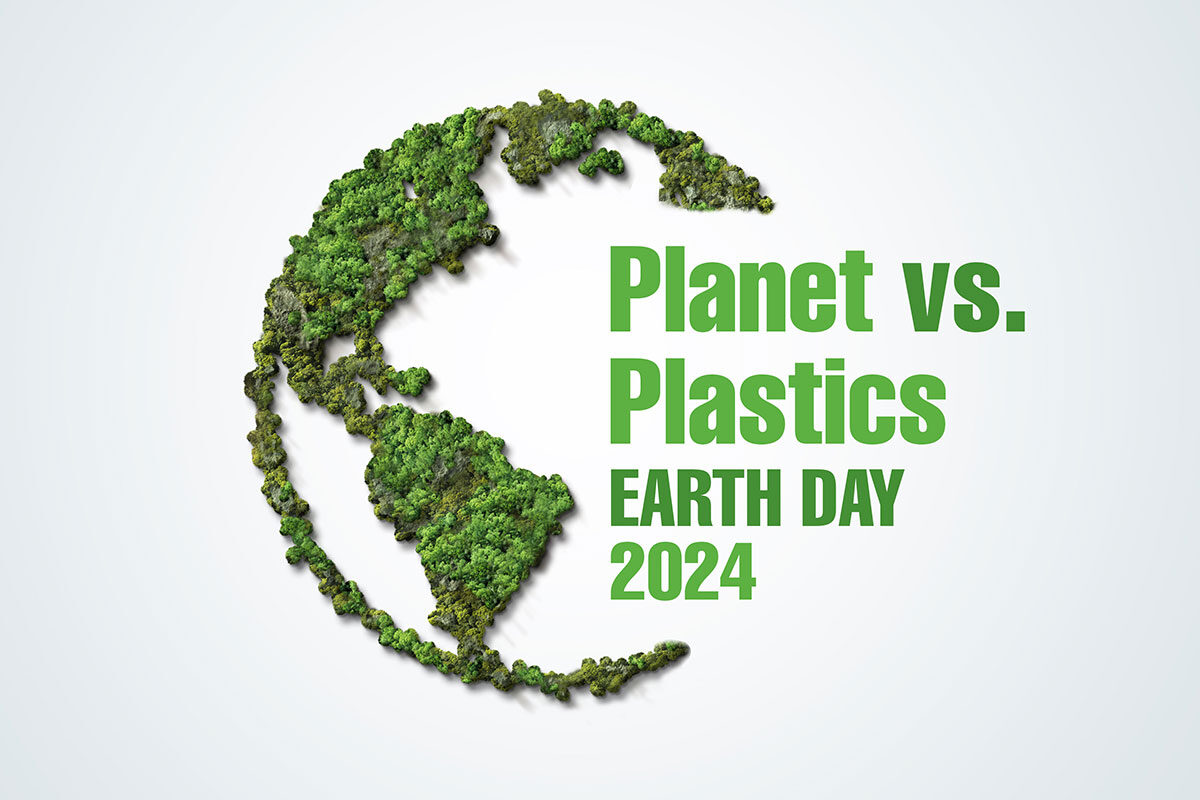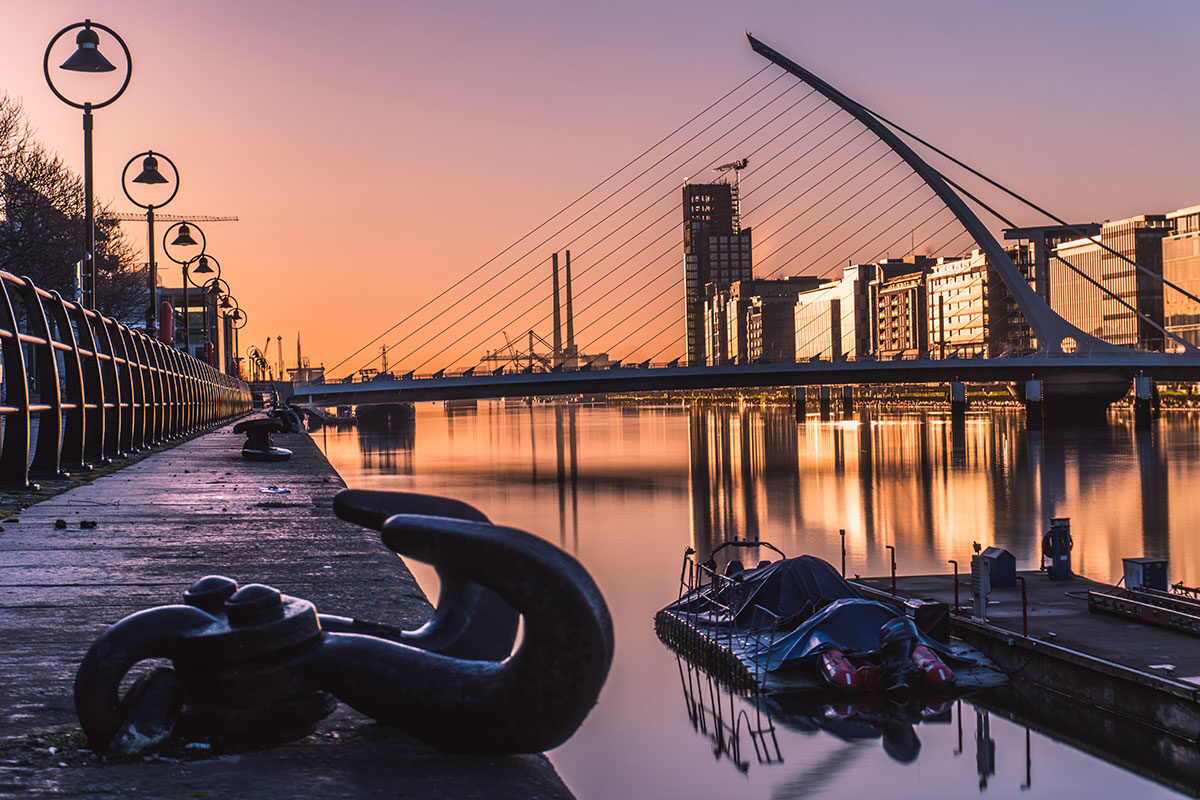Illuminating Sustainability
Today marks the International Day of Light.

This week we mark International Earth Day, the annual ‘world day’ on which a call to environmental action echoes across the globe. This day aims to drive environmental awareness, spur governments into making meaningful future-forward change and encourage citizens worldwide to step up and play their part in fighting climate change, protecting nature and achieving global sustainability.
Today is International Earth Day.
Celebrated annually on 22nd April, since its inauguration in 1970, this global environmental movement has brought attention to a multitude of critical challenges and crises. These issues encompass everything from public health and safety to economic parity and the preservation of species populations.
You’d think it’d be a no brainer. Planet 1 - Plastics 0. And yet, despite our seemingly unwavering commitment to environmental conservation and reducing sky-high levels of pollution, our ongoing reliance on plastic continues to hinder our progress in achieving sustainability, both here in Ireland and further afield.
Plastics, particularly micro-plastics, have infiltrated every aspect of our daily lives, from personal routines to business operations. The pervasiveness of these tiny particles raises concerning implications for both our health and the environment.
Consider the products we use daily—lotions and creams. Not only do we ingest micro-plastics unknowingly, but we also apply them directly to our skin, unaware of their potential consequences.
Studies have extensively documented the presence of micro-plastics in various food items, including salt, rice, and packaged fruits and vegetables. What's more alarming is their prevalence in cosmetic products, with research revealing that over 90% of these items contain micro-plastics. From deodorants and shampoos to anti-aging creams and moisturisers, these particles lurk in our everyday essentials, even in the liquid soaps and hand lotions found in corporate and retail settings. As we delve deeper into understanding the impact of micro-plastics, it becomes evident that urgent action is needed to address this growing concern and safeguard both human health and the environment.
Since its invention, plastic has become integral to our lives, so much so, that every year a staggering 8 million tonnes of it ends up in our seas and oceans alone
As Earth Day approaches, the call to action is clear: it's time to choose between our planet and the pervasive presence of plastics. But it's not just about the obvious plastic items we use daily; it's about the unseen pollutants that threaten both human and wildlife health worldwide.
Often, these plastics fly under the radar, invisible but insidious in their effects. By shining a spotlight on them this Earth Day, we're reminded of their profound impact on our well-being and that of future generations.
The message is simple yet urgent: it's time to break free from plastic's grip. Let's take decisive action to rid our lives, both personal and professional, of this harmful material and pave the way for a healthier, more sustainable future for all.
The aim of Earth Day is to reflect and raise awareness about environmental issues and promote sustainability practices to protect the planet and to take positive steps towards preserving and restoring the Earth's natural resources for future generations.
Every day, across the globe, billions of individuals, both human and wildlife alike, interact with plastic in various forms. Yet, amidst this pervasive presence, there lies an opportunity for profound change. Our daily routines, from work to meal preparation, have inadvertently contributed to a cycle of plastic pollution. However, as stewards of this planet, we hold the power to shift the course towards a brighter future.
Although the consequences of plastic pollution may seem daunting, they serve as a catalyst for action and transformation. By choosing to prioritise the well-being of our planet over convenience, we can break free from the cycle of disposability. In the face of climate challenges and biodiversity loss, our collective efforts can forge a new direction—one rooted in sustainability and resilience. Together, let's embrace this pivotal moment and embark on a journey towards a healthier, more vibrant Earth.


At a local level, organisations can implement industry-led frameworks such as ISO 14001, 14064 and 45001 to achieve those operational best practices that can help achieve a healthier, safer and ultimately, more sustainable business model.
By adopting the principles of ISO EH&S standards and aligning with their process-based requirements, organisations can deliver on ESG obligations whilst simultaneously demonstrating commitment to the health & wellbeing of their workforce along with a desire to reduce their carbon footprint and environmental impact.
An ISO Environmental, Health & Safety Management System provides clear and unequivocal guidance on sustainable and welfare best practices, helping organisations to achieve both OH&S and Ergonomic excellence and a sustainable business model that drives optimal resource performance, waste management and employee wellbeing.
Those businesses which effect change by leveraging ISO frameworks are in essence, working in alignment with the Earth Day movement to:
“make a meaningful impact and
create a more sustainable world.”
The leaders of the Earth Day movement hope that with our support, they can continue to drive creativity, innovation and vision across peoples at all levels of influence, from teachers to business entrepreneurs, tech innovators to political leaders in the hope that together we can achieve agreed climate targets, mitigate the climate crisis, eradicate pollution and the poverty, poor health and inequality it brings in its wake. If you want to learn more about Earth Day and the challenges facing and opportunities from a Zero-Carbon future.
To discuss how CG Business Consulting can help your organisation to improve its Environmental, Health and Safety standards and achieve EH&S best practices, call us on 01 620 4121 to talk to one our our team of experts in the field.

Today marks the International Day of Light.

A major review of climate change science says that while the world is likely to pass a dangerous temperature threshold in the next decade, the worst...

The impact of rising temperatures is being felt in Europe more than anywhere else on the planet with recently released figures indicating a 30% rise...